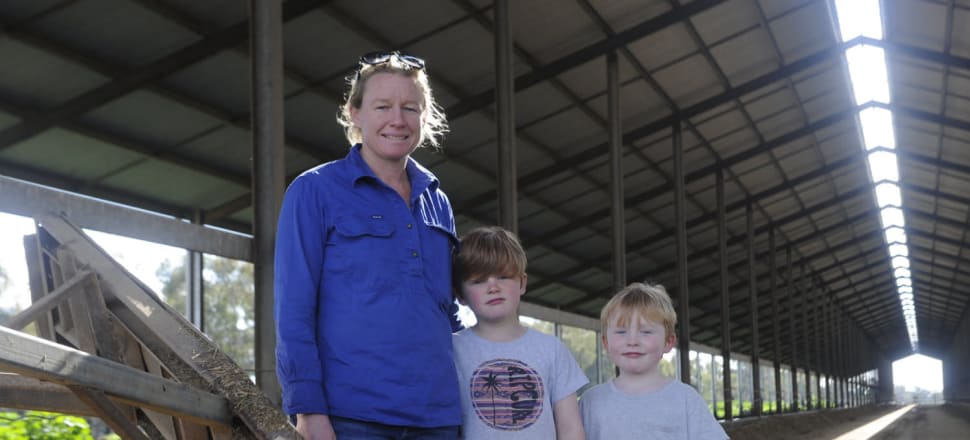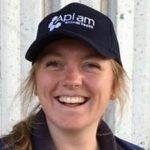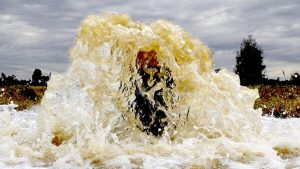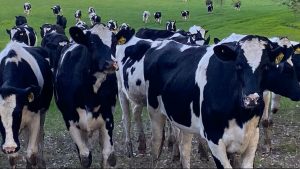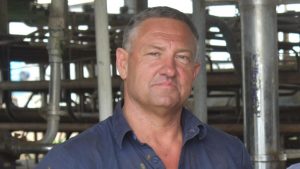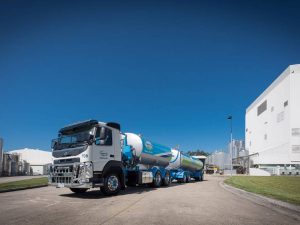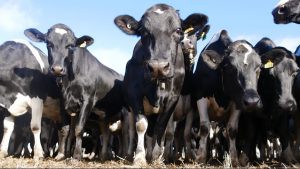
The boom or bust water allocations NSW farmers have come to know mean dairy farmers need to be ready to go big — or survive on nothing — at the drop of a hat.
Kristen Clark and her sister Donna run their mother’s dairy farm together.
“When water is available we have to grow as much fodder as we can so then we’ve got this year’s and next year’s in storage for the drought times,” Kristen Clark said.
“We would like to have two years in reserve. In the drought we’d drawn right down on it and now we’re building up again. We did well with the corn last year and hopefully we can do it again this year.”
Last year the Clarks produced 4500 tonnes of fodder off their farm — 2500 of that corn and 2000 dryland cereals.
“When there is water we do a bit of grass silage, otherwise it’s other crops,” Ms Clark said.
For more than a decade the farm has been steadily adopting a barn-style, intensive approach to dairy farming as the sisters plan for the effects of climate change.
Their sheltered feedpad was constructed in 2005 and continues to hold up against daily use in winter and near-constant use in summer.
The feeding-out becomes more intensive in summer when the pasture is taking a hit from the heat and lack of rain.
“We’ve got a feed-out guy who is pretty much full-time feeding cows,” Ms Clark said.
“At the moment we are still grazing so he’s not so hard-pressed, but in the summer he needs to be ready to go as soon as the cows are being milked.”
The Clarks use contractors to harvest their fodder, with practically everything going into pits.
Pit silage is then pulled out with a grab head on a JCB telehandler and taken to the feedpad in a silage mixer wagon on the back of a truck.
Ms Clark said the farm was evolving towards the barn system more and more as time went on, which meant more and more silage.
“By having the shed it helps with animal welfare. The shed is a response to climate change and those hot summers,” she said.
Recently the farm was awarded a grant from Coles to construct loafing barns adjoining the feedpad.
The loafing areas will help the farm turn the herd’s bedding and waste into compost, while also giving the herd better facilities in summer.
Glenbank Farm became a Coles supplier in 2020.
Hard lessons the Clarks have learned over the years is to not relax when it comes to quality.
“You need to keep on top of quality. All of it, but particularly at harvesting,” Ms Clark said.
“Harvesting it at the right stage is the easiest way to get best quality.
“It is easier to make up a mix if you’ve got good ingredients to start with.
“If you start with ordinary ingredients you struggle to make a mix the cows will eat from. Then you have to add in extra and it becomes an expensive way to do it.”
